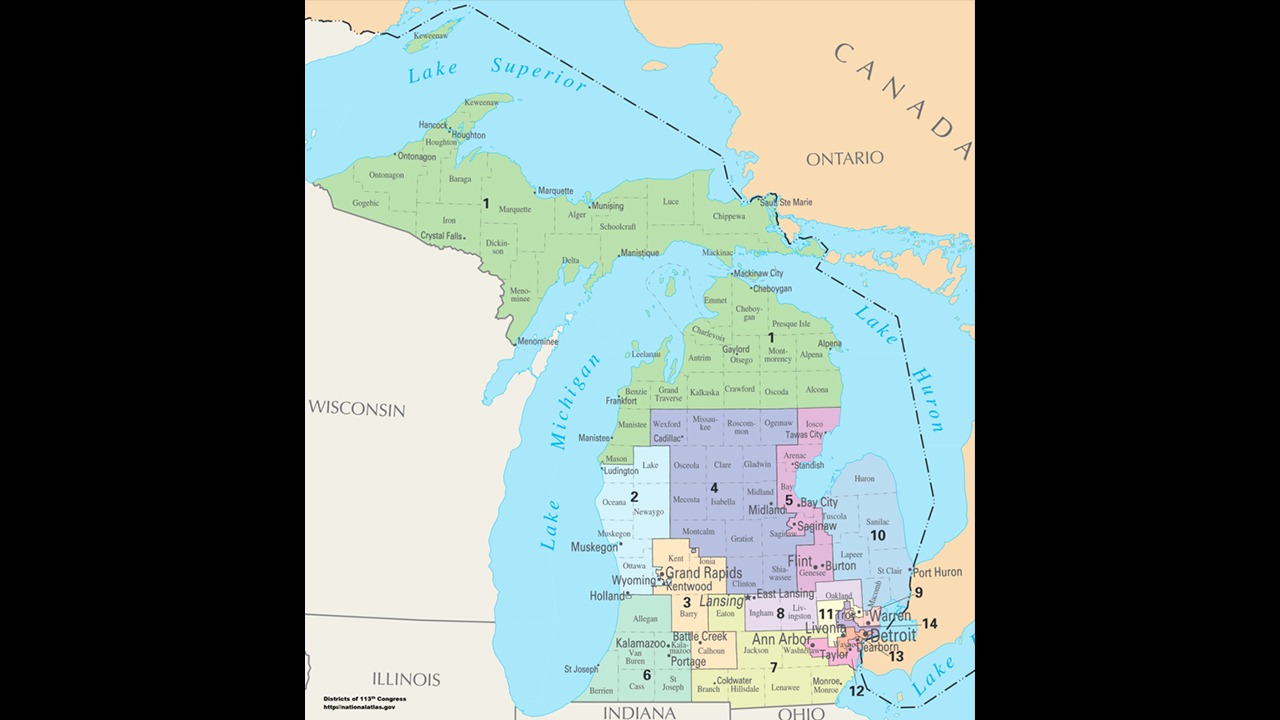Michigan Will Lose a Congressional Seat. Here’s What That Means for Redistricting.
Michigan’s lost congressional seat signals a much larger problem with population.

Last year’s Census count found that Michigan is not growing as fast as other states, which will result in the state losing a congressional seat. Now that we’ll soon be down to 13 districts instead of 14, there’s a question of how this will affect Michigan’s congressional district map.
“Obviously fewer people is going to result in fewer dollars from the feds and fewer dollars down to the local levels. That is a big problem and certainly an issue that needs to be addressed.” –Kurt Metzger, demographer and mayor of Pleasant Ridge
This change also comes as the map is being redrawn by a new independent commission, which many are hopeful will create district lines that more accurately reflect the communities they contain instead of being drawn to advantage political parties.
Listen: How the Census will shape Michigan’s congressional map.
Guests
Kurt Metzger is a demographer and mayor of Pleasant Ridge. He says that Michigan is not as attractive as Southern or Western states. “Michigan tends to be an out-migrant state, at least domestically. We tend to send out more residents than we receive.” Metzger says this has a negative effect on the state’s economy. “We’re not attracting the young, educated population that we need.”
The Census also determines federal funding, which is why Metzger says low counts are a problem. “Obviously, fewer people is going to result in fewer dollars from the feds and fewer dollars down to the local levels. That is a big problem and certainly an issue that needs to be addressed,” he says. The state’s declining population is an issue that Metzger says will take a unified effort to combat. “We just seem to be a very separated state, and certainly the Republican messaging from Lansing isn’t helping us,” he says. “There needs to be more coordination between the Great Lakes states to address this losing battle we’re fighting.”
Jon Eguia is a redistricting expert and professor of economics and political science at Michigan State University. He says losing a congressional seat won’t necessarily make it harder to redraw the district map. “Since the previous map wasn’t any good, it was not a good role model to follow,” he says. “Even if we would have had 14 districts, the commission wouldn’t have worked from the old map.”
Eguia says the Independent Citizens Redistricting Commission will create a more logical district map. “Even if there wasn’t anything particularly nasty about the last map … it was a map done for a different time with different rules,” he says.
Web story written by Nora Rhein
Trusted, accurate, up-to-date
WDET is here to keep you informed on essential information, news and resources related to COVID-19.
This is a stressful, insecure time for many. So it’s more important than ever for you, our listeners and readers, who are able to donate to keep supporting WDET’s mission. Please make a gift today.
